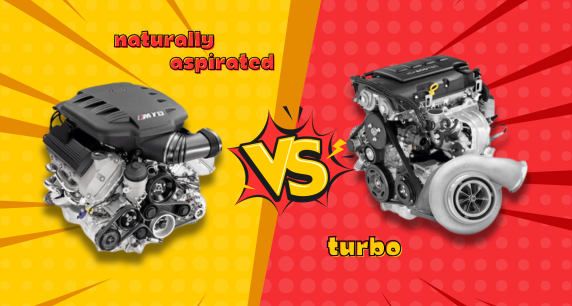What is Fully Synthetic, Semi Synthetic and Mineral oil?

We all want to give our favorite cars the greatest engine oil, but we are frequently perplexed by the numerous grades, brands, and types. Our ignorance of viscosity grades and the distinctions between completely synthetic, semi-synthetic, and mineral oils is largely to blame for this misconception. We will go over all the fundamentals of engine oil with you in order to provide you the knowledge you need to choose the proper lubricant for your vehicles in the future.
TYPES OF ENGINE OILS
Based on how they are made and their characteristics, engine oils for two-wheelers are divided into three main categories: fully synthetic oils, semi-synthetic oils, and mineral oils. Here is a list of what each type of engine oil includes.

WHAT IS FULLY SYNTHETIC OIL?
The majority of us are aware with the mineral oils made from crude oil. The same crude oil is used to create synthetic oils, but the technique is different. You must be aware of the variations among types of engine oils, just as you should be familiar with the various fluids used in a car. Fully synthetic oil is distilled, refined, and purified to a point where, in the end, individual oil molecules function better and more closely match the requirements of a modern automobile. It will perform better than mineral oil since it deteriorates more slowly.
In more recent cars with turbocharged engines, which operate at substantially higher temperatures than normal engines, fully synthetic oils are required. Fully synthetic oil is also strongly advised for vehicles that frequently travel in stop-and-go traffic, tow loads on a regular basis, etc. One oil that will increase the lifespan of your engine is fully synthetic.
Benefits of fully synthetic oil
- Fewer Impurities: Fully synthetic oil is more environmentally friendly and aids in reducing carbon emissions because it has fewer contaminants than mineral oil.
- Better Protection: Particularly in intense heat, fully synthetic oil maintains its engine protection for a longer period of time. Minerals, however, can deteriorate and evaporate.
- Better Fluid Mobility: As soon as the engine starts, the oil flows freely and spreads throughout the entire engine. However, the conventional oil that is used requires its own time to begin and reach its goal.
WHAT IS SEMI-SYNTHETIC OIL?
Fully synthetic oil is combined with regular mineral oil to create semi-synthetic oil. Despite not being able to perform at fully synthetic oil levels, it performs better than regular mineral oil. A price comparison between fully synthetic and semi-synthetic oil reveals that the latter is less expensive. Your vehicle won’t suffer any immediate or severe consequences if you switch to semi-synthetic oil from fully synthetic oil. However, if you use it frequently, you won’t be able to gain from driving.
Semi-synthetic oil will not allow for increased fuel efficiency. If someone asks if you want synthetic mixes or not, don’t be perplexed. It has the same meaning as “semi-synthetic oil.” The blend is created by incorporating both high and low viscosity for high and low engine running temperatures, and mixing at the proper intensity.
Benefits of semi-synthetic oil
- Better Fuel Economy when compared to Mineral Oil: Your vehicle’s fuel economy is enhanced by the semi-synthetic oil’s low viscosity and reduced friction properties.
- Better Price: Semi-synthetic oil delivers the benefits of completely synthetic oil, such as improved viscosity and longer lubricant life, at cheaper costs than fully synthetic oil, much like the best of both worlds.
- Better Engine defence: When it comes to greater temperatures and heavier loads, this oil typically offers better engine definition than other oils.
Recommence to consumer up 7,000km or 4-month duration.
WHAT IS MINERAL OIL?
The vast majority of automobiles use this type of engine oil, which is the most fundamental. Mineral oils are petroleum oils that have been purified and treated to function well across a wide temperature range. Although mineral oils are typically less expensive than the other two types of oils, they do come in a wide variety of quality. When operating a vehicle in moderately abrasive circumstances, these engine oils perform effectively (hot, cold, dusty, hilly, strenuous etc).
Recommence to use 5,000km or 2 months only.
MOTOR OIL GRADES
Take a look at some internationally used engine oil grades-
- 0W-20: This engine oil is relatively thinner when you start the engine. Here in 0W-20, the viscosity of the oil is 0 when the motor is cold. When the engine reaches its normal operating temperature the viscosity of the oil becomes 20.
- 0W-30: The 0W-30 oil is engineered to behave as a 0-weight oil at the starting temperature and a 30-weight oil when the engine reaches its normal operating temperature.
- 0W-40: The 0W-40 oil is engineered to behave as a 0-weight oil at the starting temperature and a 40-weight oil when the engine will reach its normal operating temperature.
- 5W-30: 5W-30 is the most commonly available and most extensively used engine oil.
- 5W-40 5W-40 is the fully synthetic engine oil which performs like a 5-weight engine oil when experiencing a cold start. It acts like a 40-weight oil once the engine reaches normal operating temperature.
- 10W-40 10W-40 is the engine oil which offers a 10-weight performance in the cold starting temperature. On the other hand, it provides a 40-weight performance at the normal operating temperature of the engine.
- 15W-40 15W-40 viscosity grade means it flows like a 15-weight oil from start up in Winter, but provides the protection of a 40 weight once the engine reaches full operating temperature.
SO WHICH TYPE OF ENGINE OIL SHOULD YOU BUY?
It may seem difficult to choose the right motor oil for your car, but the best place to start is by looking in your owner’s manual for the recommended oil weight recommended by the manufacturer. This will help you choose which type of oil is ideal for your automobile.
Always pay attention to the SAE value of the oil, regardless of the type you are using. It is given for lubricants used in the crankcase, gearbox, and axel. The oil flows more easily the lower the number.



